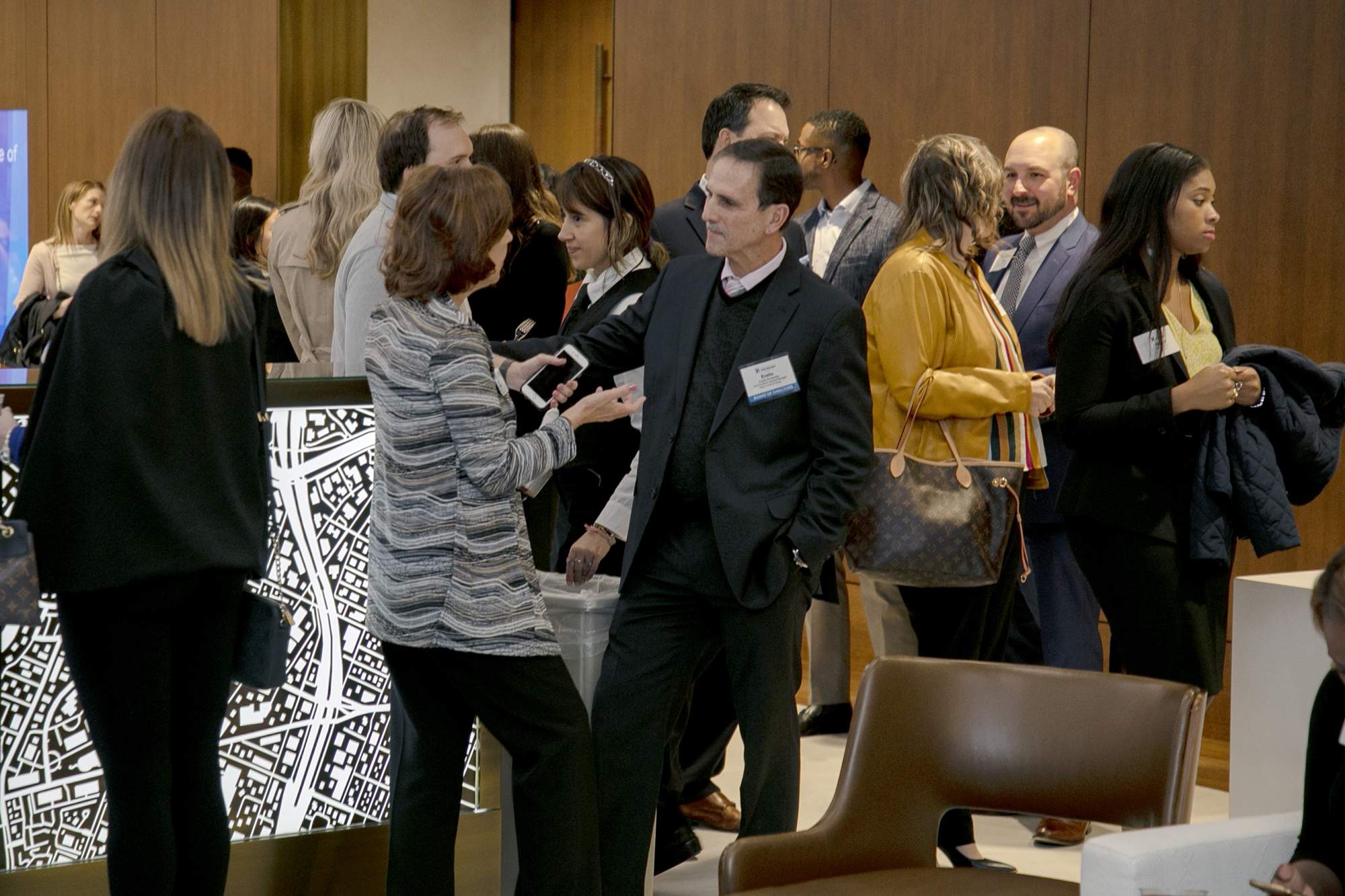Partnership Members Drive Powerful Impact
Published Dec 19, 2019 by Julia McGowen
The Greater Houston Partnership works alongside our 1,100 members to make the greater Houston region one of the best places to live, work and build a business. When companies and organizations join the Partnership, they invest in making Houston greater.
In January 2019, the Partnership launched Houston Next, a strategic plan to advance Houston as a great global city, one that centers around driving a strong, diverse, 21st century economy; ensuring a great quality of life; and offering opportunity for all.
Beyond investing in the Partnership’s mission, much of the Partnership’s efforts are made possible by the active engagement of members in our work.
Below is a snapshot of the impact made possible by our members in 2019.
Driving a Strong, Diverse, 21st Century Economy
In 2019, the Partnership and its regional allies assisted in more than 50 economic development projects, which resulted in $1.1+ billion in capital investments and the creation of approximately 3,158 jobs.
Along with business and civic leaders including Mayor Sylvester Turner, the Partnership led four major business recruitment trips to Silicon Valley, San Francisco, New York City and London. Participants attended 33 company prospect meetings and networked with nearly 200 business leaders. The Partnership also extended global ties, welcoming 133 delegations from more than 4 countries.
Partnership Economic Development and Public Policy Committees, which are comprised of hundreds of members, also guided and assisted in the recruitment of targeted companies across key verticals and addressed policy issues carrying tax and fiscal consequences.
Ensuring a Great Quality of Life
The Partnership took tremendous strides toward improving the quality of life of Houstonians in 2019, particularly when it comes to building a more resilient Texas. During the 86th Legislative Session, the Infrastructure and Resiliency Advisory Committee helped advocate for recovery and resilience funding, which resulted in the passage of Texas' first flood planning, recovery and resilience package. That legislation secured $2 billion in state funding, which will draw down approximately $5 billion in federal funding for statewide recovery and resilience.
The Transportation Advisory Committee also worked to improve local transportation infrastructure by advocating for voters to approve METRO’s bond referendum. The approved measure grants METRO $3.5 billion in bonding authority, which when combined with a potential match of $3.5 billion in federal funds and $500 million in other available local funds, will allow for up to $7.5 billion in transit network development. These projects will be crucial for the growth and mobility demands of the Houston region for the next several decades.
Supporting Opportunity for All
Human capital is the greatest asset our region possesses. As the Partnership works to support a strong, diverse economy, it is paramount that the growth we achieve is powered by Houstonians who are seeking opportunity to improve their own lives and that of their families. Significant achievements were made in 2019 on the forefront of improving our region’s public education system and pipeline for our future workforce.
Prior to the 86th Legislative Session, the Public Education Advisory Committee developed five school finance reform principles that the Partnership believed were important to any school finance reform legislation this session. Guided in part by those principles, the Legislature passed the most consequential public school finance reform since 1993 with the passage of House Bill 3. The measure unlocks more than $400 million in new state funding for the Houston region, provides funding specifically for economically disadvantaged and English language learner students, increases funding aimed at improving third grade literacy rates, and significantly reduces the local burden of funding public education. It should be noted that House Bill 3 included most of the Partnership’s principles in the final reform legislation.
The Partnership is also advancing efforts to increase the talent pipeline for the skilled workers needed to fill positions that require education and skills beyond a high school diploma but less than a bachelor’s degree. On this front, UpSkill Houston worked to engage 130 employers and more than 65 education, community, and workforce organizations over the past five years to offer effective career guidance and coaching at key decision points and to connect workers with skills-based education and hiring platforms.
Member Engagement
In addition to investing in making Houston greater, Partnership members have many opportunities to convene, learn, do business, and make an impact with other members. In 2019:
- 10,250 business and community leaders attended 20 major events featuring high quality thought leader expertise
- 4,216 members were brought together for 75 Program sessions, delivering enriching conversations, educational workshops and valuable content
- 1,460 members participated in 28 Council meetings across 10 key topic areas
- 1,529 members convened for 83 Committee meetings making an influence in 19 areas critical to the region’s growth
Click here to read the full Partnership Impact Report. Click here to see the Partnership’s Membership Directory.
To learn more about membership with the Greater Houston Partnership click here, or contact membership@houston.org.
 The Houston Report
The Houston Report




















